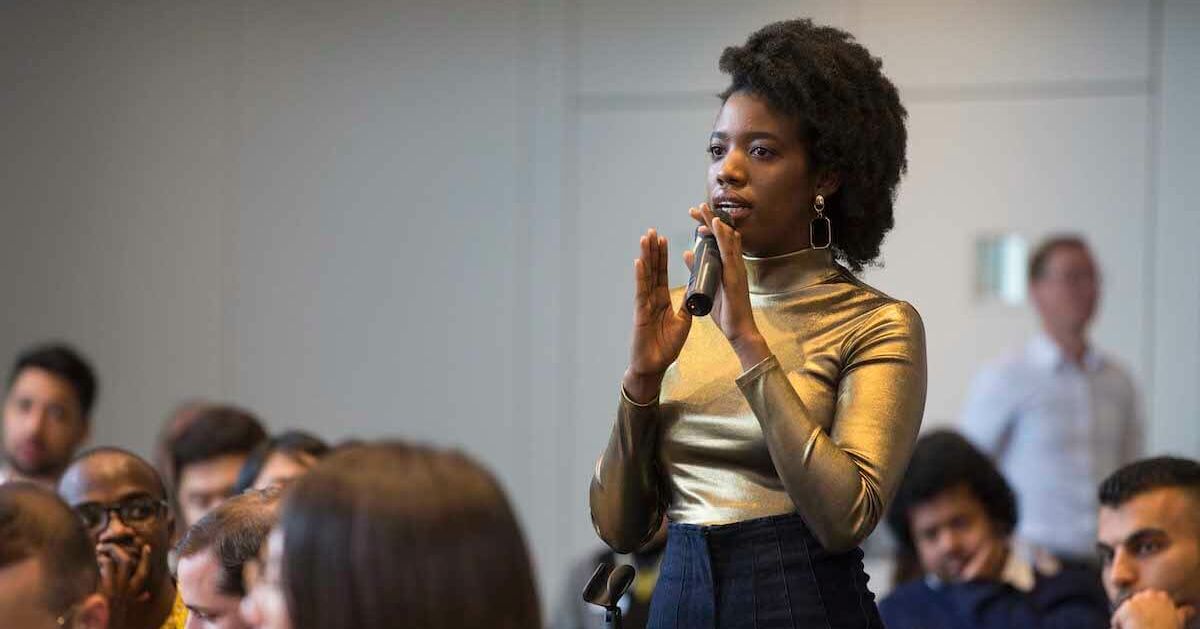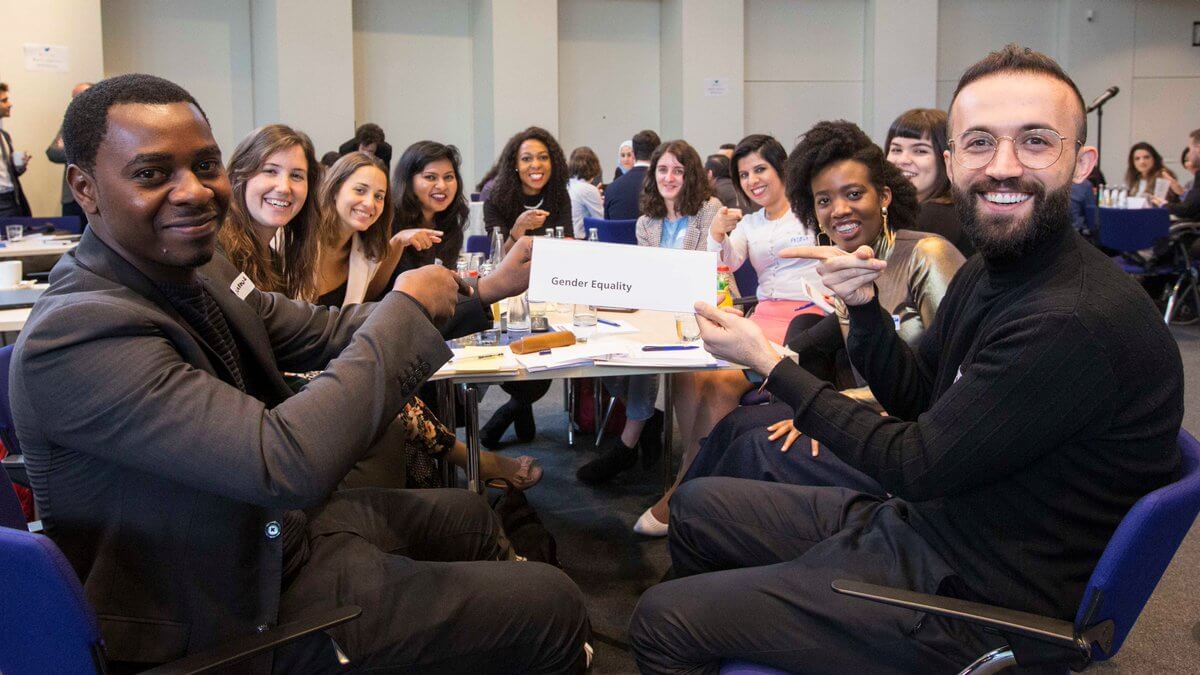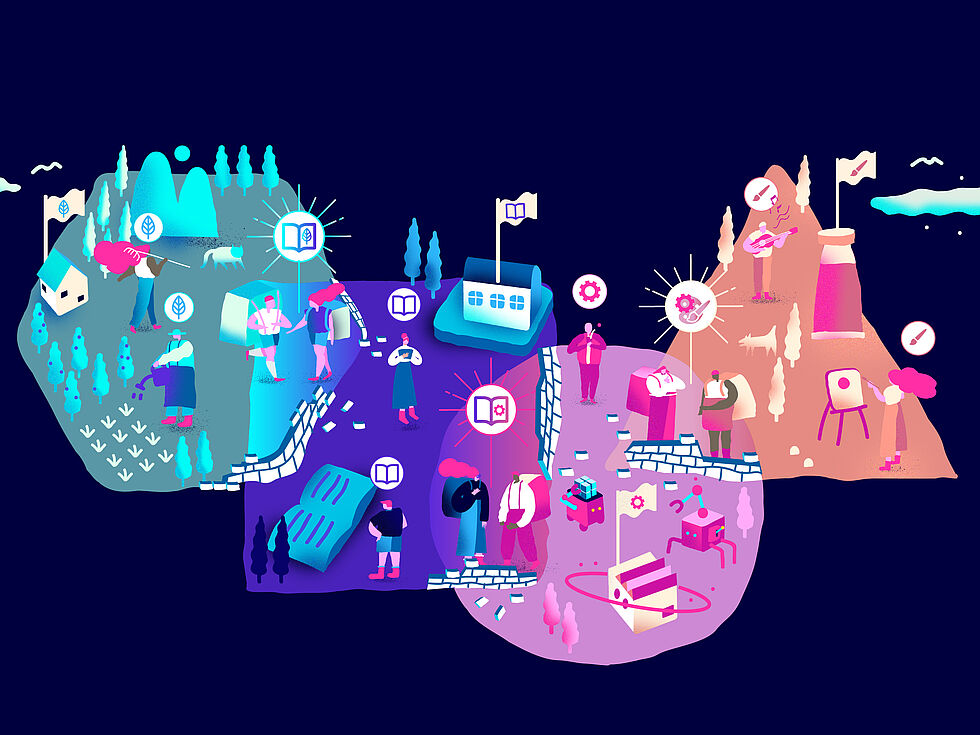African youth want and need political stability

Judicaelle Irakoze immigrated to the United States from Burundi, only to return to run Girl Talk spaces in refugee camps in East Africa through a non-profit group she founded to talk about women's and girl's rights and about gender-based violence. Of the 6.3 million refugees and 14.5 million internally displaced persons on the continent, half a million are from Burundi.
“It is very sad that the refugee crisis in East Africa is underfunded,” says Judicaelle, referring to a report by the Office of the United Nations High Commissioner for Refugees on the insufficient funding of the refugee crisis in Burundi.
Judicaelle, who still lives in the United States, joined a hundred graduate students and young professionals from over 60 countries in March in Berlin, Germany making a stab at collective and global change. On invitation of the Young Global Changers Summer School that took place in March, Judicaelle worked with other peers on developing new approaches to realizing gender equality. Gender equality was one of the priority topics on which participants like Judicaelle presented solutions by youth at the subsequent Global Solutions Summit in Berlin, an event crafting proposals for the May 2019 meeting of T20 in Japan, the think-tank task force focused on the forum of the 20 leading world economies, known as the G20.
We asked Judicaelle about her experiences as an immigrant and being part of a global youth network working on gender equality and her views as young woman from East Africa on how a just migration is attainable.
What life experiences shaped your views that today’s challenges need a global solution?
Being an immigrant in the US definitely shaped a lot of my views. But I don’t think one needs any experiences to realize the world as it is today thrives on inequalities, and change must happen collectively and globally.
The non-profit organization you founded works towards building gender equality, and the Girl Talk series in refugee camps you helped set up is part of this effort. How was working on this with youth from different countries useful?
Diversity is always needed when we are creating a change that leaves no one behind. Our gender equality work group had young people from Brazil, Nepal, Bangladesh, Zambia, Nigeria, Burundi, Argentina and Italy. We all viewed gender equality from different perspectives. For somebody like myself, I was focused on eradication of violence done against women. For others, it was child marriage, and for other women it was equal participation. This diversity allowed us to bring our different views and interests to the same table.

At its last summit in February, the African Union launched 2019 as the “Year of Refugees, Returnees and Internally Displaced Persons: Towards Durable Solutions to Forced Displacement in Africa.” How is this relevant in Burundi and East Africa, especially for youth?
Currently, there is a refugee crisis going on in East Africa. Burundi has half a million refugees and displaced Burundians. Rwanda hosts more than 100,000 Burundian refugees. Uganda hosts about the same number, and so does Tanzania and Zambia. The truth is, Burundi isn’t the only country in East Arica with a high number of refugees. South Soudan recently had a lot of refugees in Uganda, and Kenya has hosted many Somalian refugees for quite a long time.
Eighty per cent of refugees in camps in East Africa are young people from the age of 16 to 45 and children. During my work in refugee camps in Uganda and Rwanda, one of the most trending issues was lack of education due to the language barrier or lack of money. Also, young girls are exposed to teen pregnancies and forced marriages. Any crisis is gendered, and women and girls are the ones to suffer from it—that’s the story of refugees in camps in East Africa
Arrivals across the Mediterranean have continued to drop since 2017. So did the funding, which by the end of 2018 was marked by either a shutdown or by underfunding of life-saving humanitarian programmes for displaced persons and refugees in East Africa. How can we find an explanation to this paradox?
I think there is an honest conversation we are not having. Africans are moving within the African continent more than crossing the Mediterranean. It is very sad that the refugee crisis in East Africa is underfunded, knowing that African countries don’t have any integration programmes other than keeping refugees in camps.
And 77 per cent of the population in Africa is younger than 35. If youth had their say in Burundi, East Africa and at global summits, what solutions would they seek for a just migration?
I think all African youth want and need first is political stability. I grew up in war. I never knew a stable Burundi. Even between 2006 and 2010, it wasn’t a stability I can brag about. So we can not address the migration crisis without analysing the roots [of it], and the overall [root] of it is political instability, which goes with poverty. At the summer school, I was privileged to be in discussion with different young people from different African countries, and we all agreed that political stability is needed first."
###
The Young Global Changers is supported by Friedrich-Ebert-Stiftung. For more information on the cooperation contact the Global Policy and Development department at FES Berlin. For information on the Global Solutions Initiative contact the Initiative’s press team.
One week ago, 90 inspiring young activists and leaders finished the @glob_solutions summer school programme at FES. Here is a glimpse of their courage and bold ideas #YGC19pic.twitter.com/LTY6HrvJ4L
— FES online (@FESonline) 27 March 2019
About FES Connect
Connecting people, in the spirit of social democracy, we source and share content in English from the German and international network of the Friedrich-Ebert-Stiftung.





